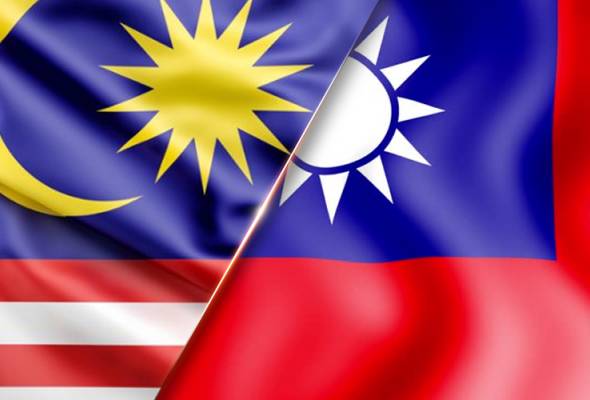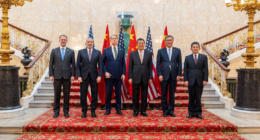Editor’s note: Late last month statistics available through Taiwan’s Ministry of Labor (MOL) indicated that for the first time the number of Malaysian professionals in Taiwan is now second only to Japanese professionals.
The Taiwan Times’ Mindy Lu takes a look at just how this increasingly influential group of non-Taiwanese see their host nation, and how Taiwan sees them.
Taiwan, as a result of historical and political factors, has been repeatedly frustrated on the international stage.
However, despite relentless pressure from Beijing, the country continues to make attempts to break through diplomatic impasse by implementing diplomatic policies and people-to-people diplomacy.
One of the target nations for this soft-power move, according to ‘’The New Southbound Policy’’ introduced by President Tsai Ing-Wen in 2016, is Malaysia – in Southeast Asia.
Taiwan and Malaysia have long had many close interactions in the areas of diplomacy, economy, tourism, education, and humanitarian aid.

Relations in trade and industry
In 1964, Malaysia set up full diplomatic relations with Taiwan.
Unfortunately, with the rise of China and the establishment of Chinese-Malay diplomatic relations in 1974, Taiwan-Malaysia relations came to an end.
Today, the two countries communicate through institutions like the Taipei Economic and Cultural Office in Kuala Lumpur, and a trade center office from Malaysia in Taipei.
On the economic front, Taiwan was Malaysia ’s fourth-largest source of foreign investment in 2017, while Malaysia served as Taiwan ’s seventh-largest trading partner in 2019.
Currently, approximately 1,750 Taiwanese investments are active in Malaysia resulting in around 15 bilateral agreements; hence, the strong economic bond that consolidates current Taiwan-Malaysia relations.
This also creates many job opportunities, perking up the economy for both nations.
Other sectors
Other non-official exchanges, such as in tourism, education, entertainment, and culture, remain close.
Malaysia has long been recognized as a popular tourism spot for Taiwanese longing to experience a tropical, and exotic lifestyle.
Meanwhile, people also have some contacts in education.
There are two Taiwanese international schools in Malaysia, while the number of Malaysian students has always accounted for a large proportion of foreign students in Taiwan.
Furthermore, in the entertainment industry, many Malaysian-Chinese singers come to Taiwan to further their singing career. These names include Gary Chaw (曹格), Michael Wong (光良), Fish Liang (梁靜茹) and others.
How well do Malaysians know Taiwan?
It is noteworthy that although Taiwan and Malaysia interact frequently, many Malaysians remain largely unaware about Taiwanese issues and culture.
In Malaysia, with a complex population blend composed of 69% Malays, 23% Chinese, and 6.9% Indians and others, there are various understandings of Taiwan in the different ethnic groups.
Even so, since Malaysian-Chinese and Taiwanese share common ground in many areas, in terms of language, culture (eg. some traditional festivals such as New Year’s Eve, Moon Festival), it is easier for both parties to communicate.
“Most of my Malaysian friends don’t know much about Taiwan. But some, usually from families which have business dealing with Taiwan, understand Taiwan more than others.” said a young male Taiwanese when interviewed by the writer. The interviewee was born and raised in Malaysia until the age of 18.
“Some Malaysian-Chinese pay attention to music stars in Taiwan, to variety shows, and TV dramas too” responded another female Malaysian-Chinese interviewee.

The system of education in place in Malaysia fortunately provides people with access to opportunities to learn more about Taiwan.
Due to the complex population composition, while the official languages of Malaysia are Malay and English, the country has schools that teach using Chinese such as Chinese independent high schools.
And, as the results of university entrance examinations conducted by such institutions in Chinese are thus not acknowledged in Malaysia, as they were not carried out in an official language, many students will choose to study in Taiwan.
“Only after studying in Taiwan do we really get to know the place” said one female Malaysian-Chinese student in Taiwan’s prestigious NTU.
Generally speaking, although some Malaysians remain ignorant of Taiwan, the rest of them who do have an awareness of Taiwan have a good impression of the country.
They think Taiwan is a very convenient country, with its people hospitable and warm.
What can Taiwanese do?
Although China keeps bashing Taiwan, Taiwan has made itself shine on the global stage, especially during the ongoing COVID-19 pandemic.
Effectively controlling the virus in Taiwan, donating masks to countries in need, and using the #TaiwanCanHelp hashtag online have all combined to impress the world,
This has also served to bolster relations with different countries along the way.
However, while actively improving international visibility, Taiwan should also take the time to learn more about other countries in order to help consolidate these new and improving relationships.
In writing this article, the writer interviewed Malaysians and Taiwanese in Taiwan, and surprisingly discovered that many of the Taiwanese spoken to knew next to nothing about Malaysia.
Stereotypes about the country existed, even mistaking all Malaysians for the Malays, which sometimes bothers some Malaysian-Chinese.
Therefore, to strengthen Taiwan’s position in the world, besides the effort made by the government and the upper echelons of society, we ‘normal’ people should also work hard at different levels on understanding other countries, and creating people-to-people diplomacy from the grassroots up.










Comments are closed.